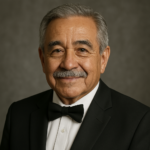The Lodge Treasurer holds a vital position in the structure of Masonic leadership. As the chief financial officer of the Lodge, his duty extends beyond simply balancing books. It is a sacred trust to manage the collective resources of the brethren with transparency, prudence, and foresight. A financially healthy Lodge ensures continuity of operations, meaningful member experiences, and the legacy of our fraternal tradition.
In this post, we’ll explore the full scope of Lodge finance with a focus on the Treasurer’s responsibilities, officer stipends, proper fund management, and systems of financial accountability.
Maintaining Accurate Financial Records
The Treasurer is responsible for tracking every dollar the Lodge receives and spends. All transactions, whether income or expenses, must be logged, documented, and reported.
Key responsibilities include:
- Recording all income and expenses using systems like Intacct, provided by Grand Lodge
- Distinguishing between restricted and unrestricted funds. For example, donations for scholarships must be kept separate from general Lodge funds
- Maintaining clear documentation such as invoices, receipts, and vouchers for every expenditure
Example: If a member donates $500 to be used for building repairs, those funds cannot be used for a Lodge dinner. They must be recorded as restricted and disbursed only for the intended purpose.
This accuracy not only ensures legal compliance and good stewardship but also fosters trust among the brethren.
Preparing and Managing the Lodge Budget
Creating the Lodge budget is a collaborative effort between the Treasurer, Master, Secretary, and finance team. The process should begin early in the preceding year and follow a structured timeline.
Typical Budget Timeline Highlights:
- February: Review prior year financials and estimate dues, membership, and investment income
- May: Draft a working version of the budget, factoring in all expected programs and events
- July: Update projections and assess if a dues or fee increase is necessary
- November to December: Finalize the budget and include any per capita updates
- January: Present the finalized budget for adoption at the stated meeting
Example: A Lodge with 100 dues-paying members at $150 per year should expect $15,000 in dues income. If 10 members have remitted dues or hold life memberships, the adjusted income becomes $13,500.
The adopted budget becomes the financial blueprint for the year, guiding program planning, charitable giving, and operational decisions.
Officer Stipends and Revolving Funds: Know the Difference
There is often confusion around officer compensation and discretionary spending. Grand Lodges clearly define what is permitted and how it should be managed.
Officer Stipends
Lodges may allocate stipends for officers performing essential roles. This typically includes the Secretary, Assistant Secretary, Tiler, and Organist. These stipends must be included in the annual budget, approved by vote at a stated meeting, and recorded as discretionary expenses.
Revolving Funds
Lodges may establish two specific revolving funds, each up to $500. These allow limited, pre-approved spending without requiring a vote for each transaction:
- Refreshment Fund
Managed by the Stewards or Junior Warden and used to provide complimentary refreshments for Lodge meetings. It is not intended for dinners or large events. Receipts must be submitted monthly for reimbursement. - Secretary’s Fund
Used for incidental administrative supplies such as postage, envelopes, or small office expenses. This fund cannot be used for equipment purchases or personal compensation.
Important Note: These funds are not personal allowances. All spending must align with the fund’s intended purpose and be documented for accountability. Misuse or misunderstanding of these funds can create serious financial and ethical issues.
Financial Accountability and Oversight
Financial transparency is a core Masonic value. The Lodge employs several systems to ensure its funds are managed with integrity.
Audit Committee
Each year, the Master appoints an Audit Committee consisting of three members who are not the Treasurer or Secretary. The committee should also exclude any brother with signing authority on Lodge accounts.
The committee’s responsibilities include:
- Reviewing financial statements and Lodge bank accounts
- Verifying random samples of receipts, disbursements, and payroll records
- Using your Grand Lodge’s official Lodge Audit Guide to evaluate compliance
- Reporting findings to the Lodge at a stated meeting
If the Lodge hires a CPA to conduct the audit, the Audit Committee oversees the engagement and ensures the audit is completed correctly.
Inspector’s Annual Review
The district Inspector conducts an annual review of the books and records. The Treasurer must ensure that all financial reports, audits, and required tax filings are completed and ready prior to this review.
These procedures help protect the Lodge’s financial integrity and reinforce the trust placed in its officers.
Reporting Requirements
The Treasurer is responsible for timely and accurate filing of all required reports.
Lodge Reports:
- Annual Financial Report: Presented at the February stated meeting
- Semi-Annual Report: Presented at the August stated meeting
Grand Lodge Reports:
- Annual Financial Report: Due March 15, unless the Lodge uses Grand Lodge provided accounting software.
Example Government Filings for Lodges in California:
- IRS Form 990: Due May 15
- California Form 199: Due May 15
- Employment Tax Filings: Forms 941, DE9, DE88, W-2/W-3, and FUTA forms filed quarterly or annually
Failure to meet these deadlines can result in penalties and may jeopardize the Lodge’s nonprofit status.
A Sacred Trust
The Treasurer’s role is not simply administrative. It is a position of deep trust and fraternal responsibility. By following sound financial principles and upholding our Masonic values of integrity and accountability, the Treasurer enables the Lodge to focus on its true purpose, fraternal development, charitable outreach, and the advancement of Masonic light.
“Proper financial management is the silent architecture behind every successful Lodge event, degree, and charitable endeavor.”
Fraternally,
T. A. Westgate.


